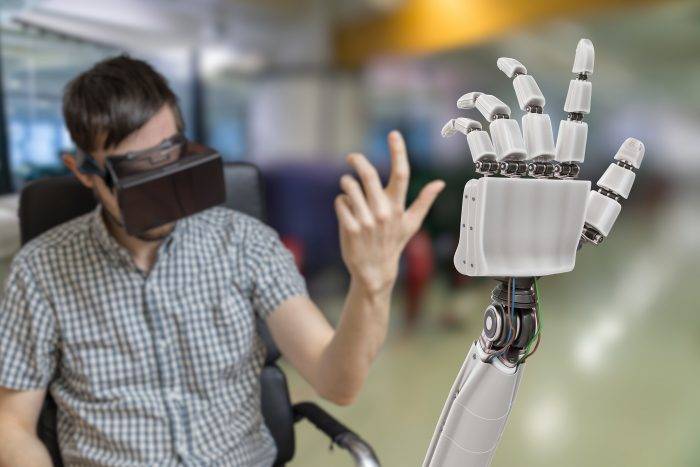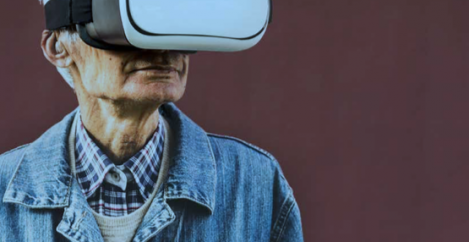February 22, 2018
Report calls for better understanding of the future risks of tech to workplace wellbeing
 In a workplace dominated by insecurity, gig work and intelligent machines we need to improve our understanding of their potential impact on health, safety and wellbeing claims a new report. Future risk: Impact of work on employee health, safety and wellbeing, commissioned by the British Safety Council from RobertsonCooper researchers argues that the public debate on the future of work has centred so far on the likely shape of the workplace and its implications for both employers and employees. There has been far less focus on what this might mean for workers’ health, safety and wellbeing, with discussions centring on the present, rather than preparing us for the challenges of the future. Yet, the impact of automation on the workplace will be more fundamental than is commonly understood, with 11 million jobs predicted to be lost in the next 20 years in the UK. As we are already seeing with some ‘gig’ working, it may undermine such basic human needs as social identity, economic security and a sense of belonging. The report reviews the existing literature on this subject and makes a number of recommendations.
In a workplace dominated by insecurity, gig work and intelligent machines we need to improve our understanding of their potential impact on health, safety and wellbeing claims a new report. Future risk: Impact of work on employee health, safety and wellbeing, commissioned by the British Safety Council from RobertsonCooper researchers argues that the public debate on the future of work has centred so far on the likely shape of the workplace and its implications for both employers and employees. There has been far less focus on what this might mean for workers’ health, safety and wellbeing, with discussions centring on the present, rather than preparing us for the challenges of the future. Yet, the impact of automation on the workplace will be more fundamental than is commonly understood, with 11 million jobs predicted to be lost in the next 20 years in the UK. As we are already seeing with some ‘gig’ working, it may undermine such basic human needs as social identity, economic security and a sense of belonging. The report reviews the existing literature on this subject and makes a number of recommendations.
While providing an overview of the landscape of work, the report explores the changes that employers and employees are likely to experience over the next 20 years. It focuses on the risks of these changes to the health, safety and wellbeing of the workforce.
Professor Cary Cooper CBE, Professor of Organisational Psychology and Health at the University of Manchester, founder of RobertsonCooper, said: “We know that work is changing, which is why there is currently so much conversation about the future of work. However, we know less about the risks this might bring to the health, wellbeing and safety of employees, so it’s a challenge for businesses to prepare for this.”
The main themes explored by the report are:
- Implications of ‘any time, any place’ work. A move away from standard work practices, hours and location will challenge the relationship between employers and their workforce. “We are currently seeing loyalty between employers and employees decreasing, which means that retaining healthy, high performing employees is even more important. Organisations of the future need to trust their employees and manage by praise and reward,“ explains professor Cooper.
 Need to build resilience. The future world of work will place new pressures and forms of stress on employees. Working alongside intelligent machines and robots, which never stop, outperform humans and are incapable of social interactions, will require an entirely different set of skills. This may strip away everything good work in traditional social environment offers employees, such as a sense of identity and belonging, as well as social support. That’s why employers will need to introduce specialist training and wellbeing programmes to help their employees gain skills that will build their resilience and help them to cope in new circumstances.
Need to build resilience. The future world of work will place new pressures and forms of stress on employees. Working alongside intelligent machines and robots, which never stop, outperform humans and are incapable of social interactions, will require an entirely different set of skills. This may strip away everything good work in traditional social environment offers employees, such as a sense of identity and belonging, as well as social support. That’s why employers will need to introduce specialist training and wellbeing programmes to help their employees gain skills that will build their resilience and help them to cope in new circumstances.- Forward thinking education. New jobs in partially-automated, remote or less secure workplaces may require a greater variety of ‘soft skills’, including creativity, leadership, flexibility and social skills, as well as skills related to new technology and the ability to collaborate with intelligent machines and robots. School and training bodies should start developing such skills and this process should continue beyond the compulsory education system. Such training must teach employees how to look after themselves, as well as how to take responsibility for their own health, safety and wellbeing.
- Updating regulatory systems to protect modern workers. In modern workplaces, where humans will work alongside robots, and companies operate across borders, the answer to the question of where ownership of risk lies, i.e. who should take responsibility if something goes wrong, will be of crucial importance. As employment contracts are increasingly diffuse (people in the gig economy are often not classified as workers), companies may wish to avoid the costs of sickness absence or liability insurance. The government should look at all measures to protect the self-employed and gig workers.
- Understanding future risks. These fundamental changes to work and the work environment present huge risks to employers, employees, the economy and the environment. For example, the fast pace of innovation, insecurity around employment status and a drive for efficiency are putting increasing pressure on people, which can lead to stress, which people working remotely may not be able to handle, particularly if they are older. The current understanding of these risks is poor in places. The report, while identifying the risks which have particular relevance to employee health, safety and wellbeing, calls for further research into this area.
Matthew Holder, Head of Campaigns at the British Safety Council, said: “At a time when work is rapidly changing, whether through technological innovation or types of employment, there is an urgent need to have a more strategic view on what research says about the future of work and risk, and how these two issues are related. Future risk: Impact of work on employee health, safety and wellbeing tells us that the state of this research needs to improve if we are going to take action to enhance people’s physical and mental wellbeing.”
The report can be downloaded here.












